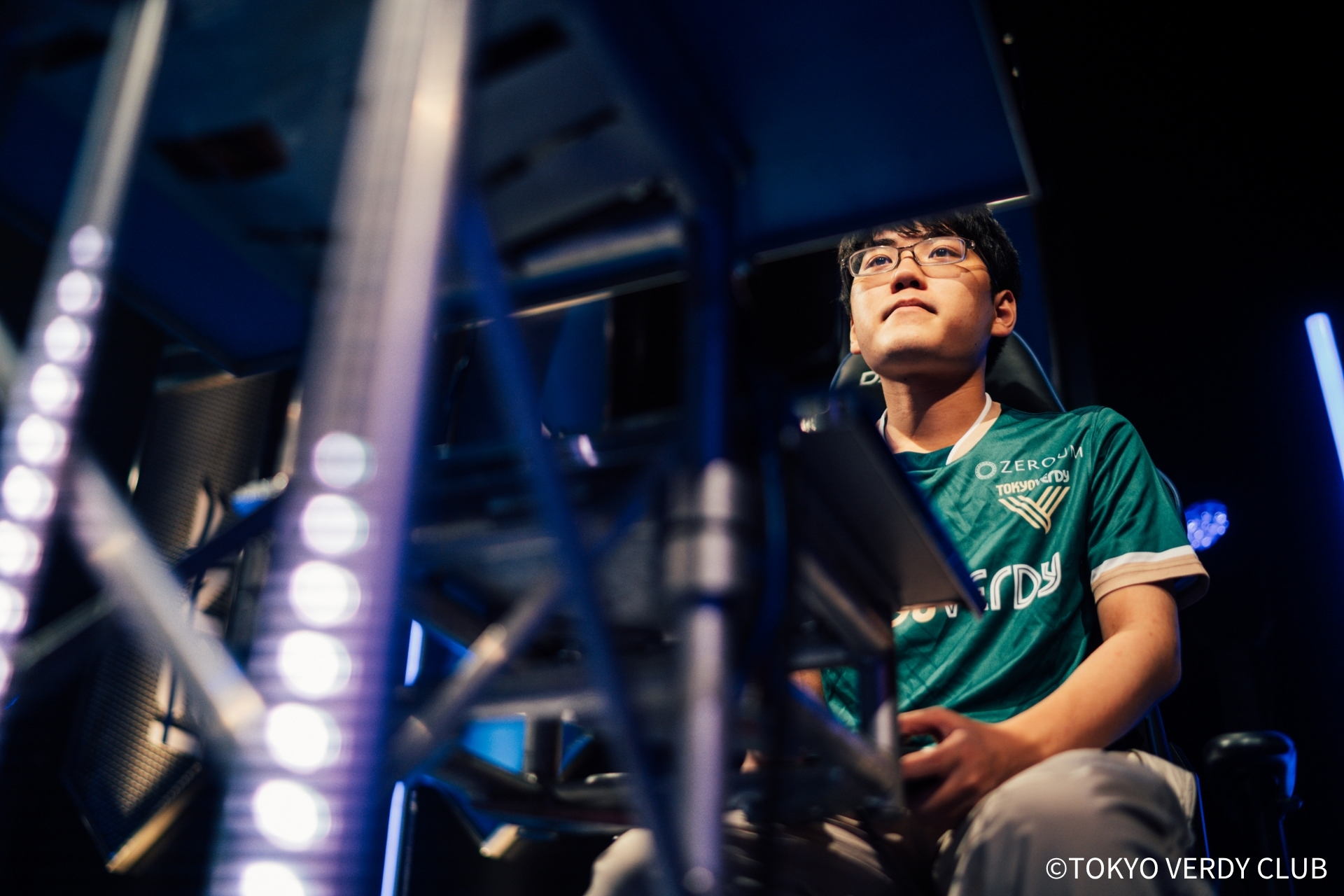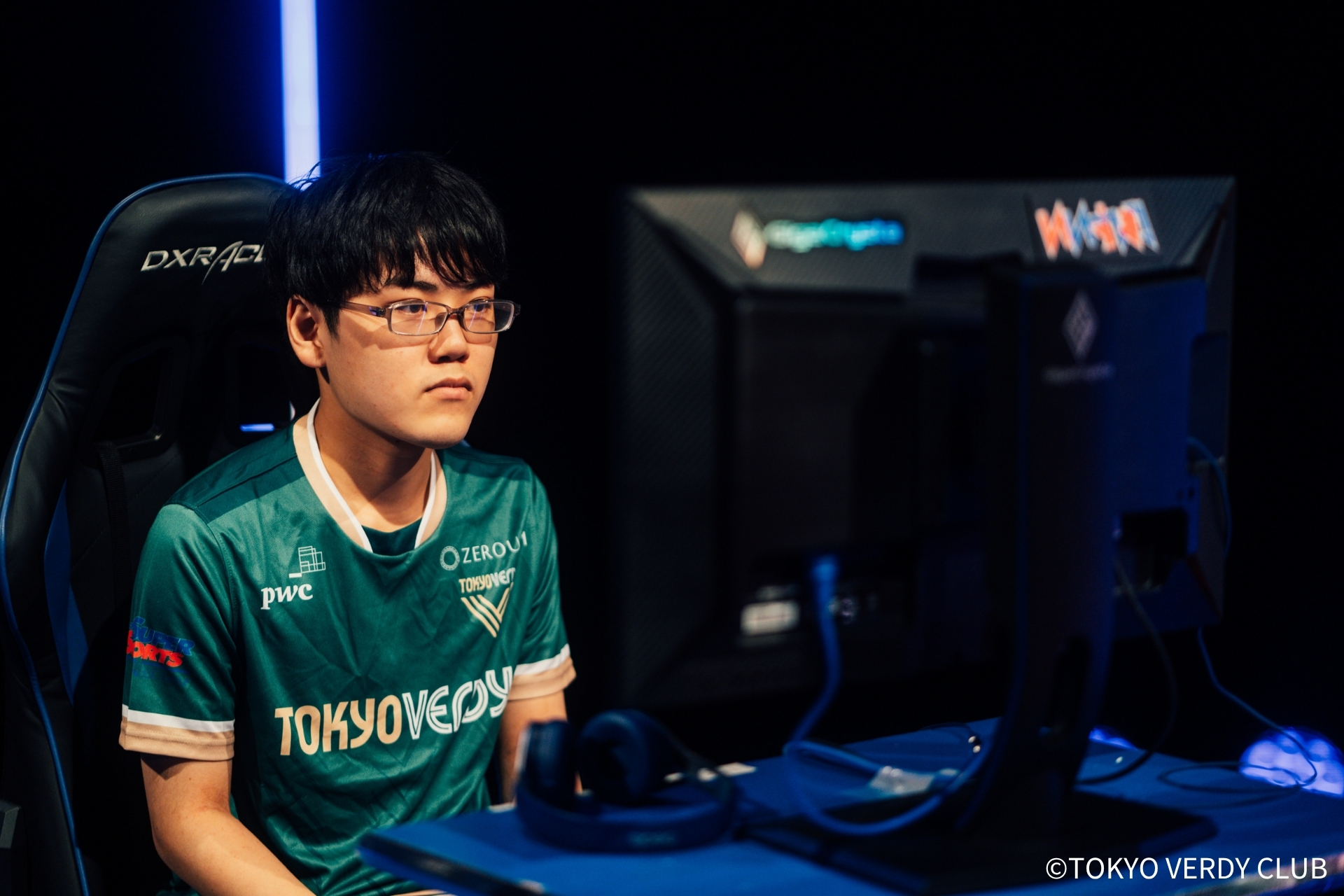Esports is gaining global attention, especially with the International Olympic Committee (IOC) announcing the first-ever Olympic Esports Games, scheduled to be held in Riyadh, Saudi Arabia in 2027. In this feature, we spoke with Tomokun, a licensed professional esports player certified by JeSU (Japan Esports Union) and a member of the Tokyo Verdy esports team. He shared his thoughts on the appeal of esports as experienced through his specialty game, Puyo Puyo, and offered insights into the future of the scene.
*Esports, short for "electronic sports", is a term that broadly refers to competitive and recreational gaming using electronic devices. It typically describes competitions involving computer or video games, which are recognized as a form of sport.

We heard you started playing esports in second grade. What got you into it?
“My mom has always loved video games, and one day she suggested we all play together as a family. That’s how it started.
There are six of us in the family—my parents, me (the eldest son), one younger brother, and two younger sisters. We were looking at a game that even the little ones could play easily and enjoy, and Puyo Puyo turned out to be perfect. It’s a falling block puzzle game where you match cute characters called ‘Puyos,’ and both the controls and rules are easy to understand. It was just the right game for us to play together and have a great time as a family.”

What part of Puyo Puyo did you find the most fun?
“I got addicted to the feeling of clearing multiple sets of Puyos in successions. It was also really satisfying to see myself improve as I practiced building bigger and longer chains. Before I knew it, I was beating my parents and even winning against the toughest computer opponents.”
You entered your first tournament in fifth grade, right?
“Yes, it was held at a shopping mall near our house. I finished in fourth place. I usually played using a controller, but in the tournament, I had to use a lever setup which I wasn’t used to, so I couldn’t play at my usual level. That really frustrated me. But still, making it to the top ranks gave me confidence, and from then on I started practicing with competitions in mind and felt a strong desire to keep improving and aim even higher.”

In a tournament setting, the opponents are tough, and the pressure really ramps up, doesn’t it?
“In regular online matches, the format is usually best-of-three. But in major tournaments, it can go up to 30 consecutive games, and a single match can last around an hour. The longer the match, the more you need to stay focused and physically sharp. When I played in my first league match, I realized this wasn’t just a game. It was the real deal as a competitive esport.”

What do you do to prepare yourself for winning in tournaments?
“I usually practice by playing 50 matches in a row to build stamina. During tournaments, I make sure to refuel with things like chocolate or ramune candy between games to keep my energy up for long battles. Even in Puyo Puyo, players have different strategies and play styles, so I practice daily with that in mind, imagining how to respond to different types of opponents. That kind of preparation really pays off when it’s time to compete.”
The way you engage with the game is just like that of a true athlete.
“It’s true that many esports players maintain their physical fitness through regular exercise. As for me, I played soccer in elementary school and got into bouldering through middle and high school. The skills I developed through sports, like strategic thinking, physical stamina, concentration, and mental toughness, have all been incredibly helpful in esports.”

You turned professional at 16. How did that change things for you?
“One of the biggest changes was the attention I started receiving and the support from fans. I’ve met many younger kids, especially elementary school students, who say they see me as a role model. That’s when I realized I need to set a good example for the next generation of players. Now that I’m part of the Tokyo Verdy esports team, I feel an even greater sense of responsibility to meet those expectations. That’s why I train every day with tournaments in mind and make an effort to stay healthy, mentally and physically.”

What do you think makes Puyo Puyo such an appealing game, even after playing it since early elementary school?
“Puyo Puyo was first released in 1991, so it’s been around for 34 years now. There have been many versions over the years, but the rules haven’t really changed. What has changed is the level of skill among players. Everyone keeps getting better. Each player has their own unique play style, and their strategies are constantly evolving. That’s what makes it so exciting to compete.
In my case, I used to go all-out with aggressive plays, setting off multi-chain combos from the start. But recently, I’ve learned to stay composed. I try to read the flow of the match and adjust my tactics in response to my opponent’s moves. In tournaments, it’s all about how well you can hold your ground when under pressure and how you manage to win close or chaotic matches. I still feel like I have a lot of room to grow.”
What should viewers focus on to better enjoy watching a match?
“First of all, the speed. The key to winning is how quickly players can stack Puyos and build their chains. When it’s a match between top-level players, both players are constantly rotating, moving, and dropping Puyos without missing a beat. At the same time, they’re reading their opponent’s moves in real time, looking for the perfect moment to break their own chain and launch attacks using nuisance Puyos or pull off counter multi-chains. Since all of this happens in an instant, the player’s reflexes and strategic thinking are key highlights to watch. The non-stop, intense, fast-paced action makes it truly thrilling to watch.”

Could you tell us about your goals and aspirations for the future?
“Next year, Tokyo Esports Festa 2026 will take place in January, and the 20th Asian Games will be held in Aichi, Nagoya, making it the first time in 32 years that Japan is hosting the event. My goal is to win titles at these major tournaments that will attract significant attention. Also, at some of the events where the Tokyo Verdy esports team competes, there are hands-on esports experience booths open to the public. Through opportunities like these, I hope to help grow the esports scene and show people just how fun it is to actually play.”

What would you like to highlight for people who aren’t yet familiar with esports?
“The biggest thing is that esports can be enjoyed by anyone, regardless of age, gender, or nationality. For example, Puyo Puyo has a color vision support feature, and many games are designed with accessibility options so that people with disabilities can enjoy them too. Esports includes a wide range of genres, from shooting games to sports games, and it’s gaining more and more attention around the world. Since it is a form of competition that anyone can enjoy, I hope more people take the chance to experience it for themselves.”
Do you have a favorite esports spot in Tokyo you would recommend?
“I’d definitely recommend Red Bull Gaming Sphere Tokyo in Nakano. It’s spacious, well-equipped, and has a really cool atmosphere. Since it is often used by internationally active pro gamers and streamers, it also serves as a great place for exchanging skills and ideas.
They host a wide variety of events, and anyone can come and watch or play freely. It’s beginner-friendly, but experienced players can enjoy it too. So, if you’re even a little interested in esports, I highly encourage you to check it out.”
<Profile>
TOMOKUN
Born in 2002 and originally from Tokyo. In April 2019, at the age of 16, Tomokun obtained a JeSU-certified professional license. Since then, he has won numerous tournaments, including four consecutive titles at the National Prefectural Competitive Esports Championship and a triple crown at the National Student Esports Championship, and continues to lead the Puyo Puyo scene as a top-level player. Since 2022, he has been a member of the Tokyo Verdy esports team. As a professional Puyo Puyo player, he not only competes in tournaments but is also actively involved in various initiatives to promote esports.